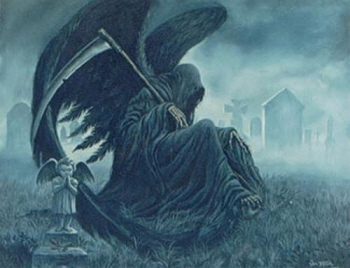
is not the first time this has happened in recent years this thing has happened to the best film in cinema history Once Upon a Time in America Sergio Leone, where a new edition, in this case, the dubbing has been completely redone by the new Italian voice actors. Nothing to say on the work of these professionals, but it is incomprehensible how Noodless the film's protagonist, played by Robert De Niro's an extraordinary film, voiced by the beautiful voice of Ferruccio Amendola, suddenly you hear a dialogue with heading other than classical and historical original. The film work, in these cases it loses its true nature, and the viewer is in front of a movie in a different part for which it was used to seeing. This is not the only flaw that decreed the downfall of a film, because the other aspect is that the remastering has become a common use. From a bit of time now in fact, films released in cinemas in the early 90's and 80's over the coming rispoposti on television, are completely remastered. What does this mean? Let us first a simple premise.
A film of the time since our eyes nowadays, certainly not appear because of the recent shots and how to turn typical of the time (certainly different from today), and this would be just fine, because a film is about the historical context in which it was shot, edit it and giving it to digital The contemporary appearance is a big mistake. It 'also happened a few days ago, when television was broadcast in a classic light-hearted film that every year during the Christmas period has always been projected: A Trading Places with Eddie Murphy by John Landis. The film was always strasmessa normally until the other day, scroll when viewing, I noticed a complete remastering that slowed the scenes, changing the vision and linearity, decreed the overthrow and ruin.
The remastering is adopted, especially in music, where the damage is more noticeable than the film, because a remastered song lasts longer in comparison to the original version because being touched up, runs more slowly, the voice is modeled becoming darker, and some incisive instruments that adorn the piece no longer feel, giving way to huge and too low.
But back to movies, and describe the icing on the cake that marked the final death during the broadcast television, namely: the interruption bombardante advertising. The first time that this was adopted for the first time was in Fininvest, which provoked the ire of director Federico Fellini against Silvio Berlusconi, President of netwoork television era. At that time, the late '80s and throughout the course of the 90 were three commercial breaks in films that were broadcast, a very limited number compared to today, not to mention that among other things, the minutes of the public were less rampant than modern times. It will only save
Rai, who had only one ex-advertising between the first and the second time and where most importantly, the end credits of the film runs to the end without being cut. Why remove the credits is like cutting a part of the story. Even today instead Rai has adopted this policy where the films are continuously cut due to several break advertising. A real murder that deturba the artistry of that film and that is the desire to move the viewer to follow. The only
times when a film is screened in full, even in its original form (ie without remastering and new dubbing), until the end of the credits is at night, but not before 2.00. It also would add good movies. Except that not everyone has the ability to turn on and watch TV at night.
With the advent of the first commercials, then cuts to the credits, then the remastering and the manipulation with the final dubbing completely re-run, some films are now virtually been sent to the stake. It is not just the fault of television. There are film industries that decide how and when to remaster and twist the dubbing, printing the market for new versions dvd of some legendary films like Dances with Wolves or Taxi Driver (to take two examples) that are changed even the historic original posters. The only real safe way to be guaranteed to see a film so original, without distortion and the distortion, is to buy at flea markets for old VHS videotapes, which under the guise of progress and the myth of development, not are proposed but remain on the market such as the mother has done, but sooner or later become extinct, too. But for now be satisfied with this, because sooner or later, hopefully before and after, this policy will die together with the development that has killed all that was found on the street in front its deadly path.
0 comments:
Post a Comment